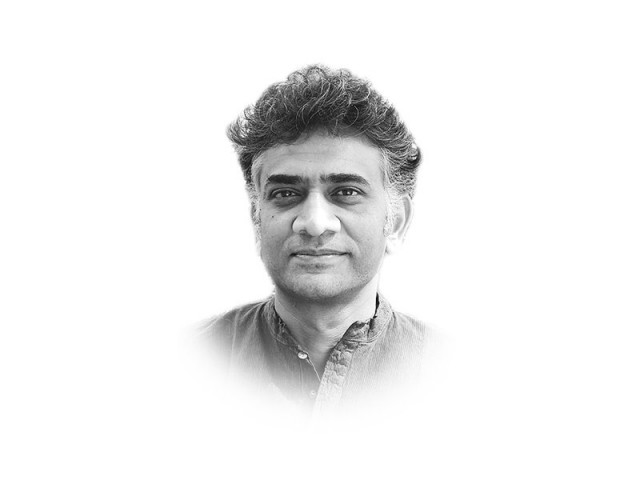Subcontinental contests
It is amazing that there is such a series today when there is less violence on ground but more in the populations

The writer is the editor and translator of Why I write: Essays by Saadat Hasan Manto, published by Westland in 2014. He is executive director of Amnesty International India. The views expressed here are his own.
aakar.patel@tribune.com.pk
Unlike football matches, cricket games go on for either a full day or five days, stretching the unpleasant or triumphant feeling for a long time. It is a good thing, then, that having more or less abandoned playing Tests against each other, the unpleasantness is limited to T20s and One- day Internationals, and that also on neutral ground.
The first problem is that much of the cricket played by subcontinental teams is watched and appreciated from the nationalist perspective. When rival teams score boundaries or take wickets the stadium goes silent. This is against all teams, but the resentment felt by the spectator against the ‘enemy’ team in the case of an India-Pakistan match will be even higher.
The other things that make sports enjoyable to watch from the stadium, the atmosphere of friendly rivalry and good-natured taunting, is entirely missing from the subcontinental contests. The armies that are lined up and firing at each other without ceasing, without much change on the ground and without much benefit, are replaced by civilians (also in uniforms, of team colours) screaming abuse.
Gujaratis add another element to sports and that is betting. But even there is a capture of the event by nationalism. I used to be a very active punter once (not any longer). One afternoon my brother-in-law Sandip Ghose was visiting us and India was playing Sri Lanka. He wanted to bet on Lanka and I called my bookie to place the bet. After I had done so, we wondered how many people had bet against India. My guess was that many would have because Gujaratis separate their emotions from their business.
I telephoned the bookie back and he said that of the 50 or so bets, Ghose’s was the first one. Meaning even the heavily betting Gujaratis were going with nationalism and backing India with their cash. Sri Lanka won the match, but my point is that with Pakistan that betting aspect will be even more lost and it will all be like war.
I can remember a time, say a little less than four decades ago, when Miandad and Imran were at their peak and Kapil Dev had just joined the Indian squad of Gavaskar, when it was enjoyable watching these matches. One of the first times it started to become awkward was in a match India played against West Indies in Srinagar in October 1983. The crowd was hostile to India and the West Indies were stunned by the support they got from the spectators. For many Indians, including me, that was the first time we became aware of the situation in Kashmir as not being normal.
I was in the stadium at Multan in March 2004, when Virender Sehwag scored a triple century against a bowling attack that had Shoaib Akhtar and Mohammad Sami. I was with a Pakistani friend and at one point someone identified us as Indian and people came to us asking for autographs.
This was in the famous friendship series, the initiative of Atal Bihari Vajpayee and Gen Pervez Musharraf. These were leaders who had fought a large skirmish in Kargil. Vajpayee as prime minister and Musharraf as army chief.
Also, we must remember that those were the years of maximum violence in Kashmir. 2001 had 20 times more fatalities in Jammu and Kashmir (4,507 killed) as in 2016 (267 killed). And so if we believe that things have gotten worse in Kashmir it is not because of the facts on the ground. But because of politics and media. It is amazing to conceive of such a series today when there is less violence on the ground, but far more in the minds of the populations.
Published in The Express Tribune, June 19th, 2017.
Like Opinion & Editorial on Facebook, follow @ETOpEd on Twitter to receive all updates on all our daily pieces.
















COMMENTS
Comments are moderated and generally will be posted if they are on-topic and not abusive.
For more information, please see our Comments FAQ